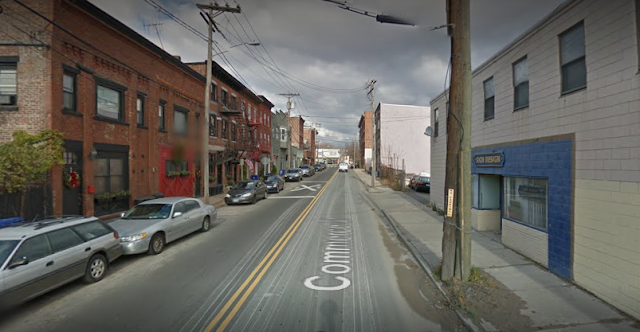Source of ammonia leak traced to ruptured valve, fire official says
By Thane Grauel and Leslie Lake
Updated 6:36 pm, Wednesday, September 21, 2016
Photo: Thane Grauel
Hazmat teams have responded to the scene at 38 Commerce St., in Norwalk on Wednesday, Sept. 21, 2016, where a strong odor of ammonia is being reported as far as Wall and Main streets. Roads are closed while ... more
NORWALK — An ammonia leak at the Crystal Ice Company on Commerce Street shut down a large swath of central Norwalk on Wednesday afternoon as emergency personnel flooded the area, closing roadways in search of the leakage source.
The first call originated from the business directly behind and downwind of the Crystal Ice Company at 25 Commerce St., when workers there reported a very strong presence of the gas at approximately 3:45 p.m.
Deputy Fire Chief Stephen Shay said that excess pressure in the system caused a valve on the roof of the Crystal Ice Company to leak. There were no injuries reported.
Streets around the area were closed and Metro-North Railroad trains, which pass directly behind the Ice House on the Danbury line, were slowed down, Shay said. The plant was shut down for the day while repairs were being made.
The gas leak prompted a heavy response from police, fire and emergency medical personnel. A HAZMAT team was on the scene investigating, and responding units were advised to wear gas masks.
Devine Bros., which is located at 38 Commerce St., moved its workers off its yard after they detected a strong odor that seemed to be coming from the Wall Street area, said company President Thomas Devine.
“We got a powerful smell down here and we called the Fire Department immediately and we evacuated our yard immediately,” Devine said. “We take count of who’s in the yard and get them out as soon as possible. It’s still a bad order. It is overpowering. We had guys, including myself, running from the odor.”
Ammonia is sometimes used in refrigeration equipment. The federal Centers for Disease Control and Prevention says that ammonia “is a toxic gas or liquid that, when concentrated, is corrosive to tissues upon contact.”
“Exposure to ammonia in sufficient quantities can be fatal,” the CDC HAZMAT card states. “One of the highest production-volume chemicals in the U.S., concentrated ammonia is used in manufacturing, refrigeration, and agriculture (as a fertilizer).”



